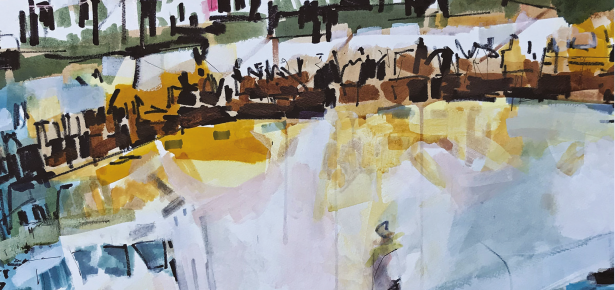
When Geoffrey Hill began his fourth lecture as Oxford Professor of Poetry in 2011, the audience members clearly expected a mischievous performance. In his first lecture, Hill had promised a future evaluation of contemporary British poetry, and in the subsequent oration he did not hold back, appraising creative writing as a neoliberal efflorescence of a doomed literary culture, with its ‘plethora of literary prizes’ and false evaluation of its own health. Anti-élitist ‘accessibility’ was the buzz word du jour, Hill argued, but ‘accessible’ should be reserved as an adjective for supermarkets or public lavatories, he added dryly, not as a value judgement in a discussion of poetry and poetics.
Subsequent comments in the fourth lecture incurred media coverage: he accused Carol Ann Duffy of publishing poetry of the same quality as a Mills and Boon novel or the work of a creative writing student. Duffy’s response was a dignified silence, and the media interest soon dissipated. Yet Hill’s lecture posed a series of questions that have concerned me throughout the writing of Metamodernism and Contemporary British Poetry. What would it mean if contemporary poetry had a ‘rule’ to exasperate? How might the critic account for this creative rambunctiousness? If readers can never quite grasp such challenging writing, how can we account conceptually for that which we cannot understand? It was also telling that Hill was silent in this lecture about ‘exasperating’ experimental writing. Would it be possible to conceptualise the challenge of Hill’s poems and ‘innovative’ writers in a way that would allow analysis of both kinds of poetry, despite their obvious formal differences?
This book attempts to answer these questions through the concept of the ‘enigmatical’. The musician Irmin Schmidt argued that great works of art always have ‘a secret that one can never quite grasp and which always reappears’. Schmidt’s thinking is uncannily akin to that of Theodor Adorno, who writes about how modernist literature encourages the reader to keep coming back to the work, but without being able to ‘solve’ it. Works of art, Adorno argues, should not be treated solely as things to be interpreted: their enigmas also need to be appreciated. This artistic ‘remainder’ in modernist literature lies beyond the slipperiness of interpretation: it may defeat the critic’s faculties, yet it remains central to understanding the artwork. As Adorno reminds us, supposedly difficult artworks do not mean something specific, just as the question ‘What is the meaning of life?’ has never been satisfactorily answered. This does not mean that we should give up on interpretation, and allow artworks simply to exist: following that logic, he proposes, one might as well try to understand a carpet. In contrast, the philosopher likens criticism to enacting and simultaneously interpreting a musical score, at the same time as the music remains elusive. Even musicians who follows the score’s most minute impulses in a certain sense do not know what they are playing.
This book thus focuses on mainstream and ‘innovative’ poems that draw on modernist literature by writers as diverse as Geoffrey Hill, J. H. Prynne and Geraldine Monk. All these authors produce an allusive and elusive writing that induces the curious reader to return time and again to their poetry. For some readers and critics, this undecodable art may seem merely unintelligible. Yet for others, the enigmatic ‘something’ that artworks convey and then ‘in the same breath conceal’ encapsulates one of literature’s most gratifying qualities.
Latest Comments
Have your say!